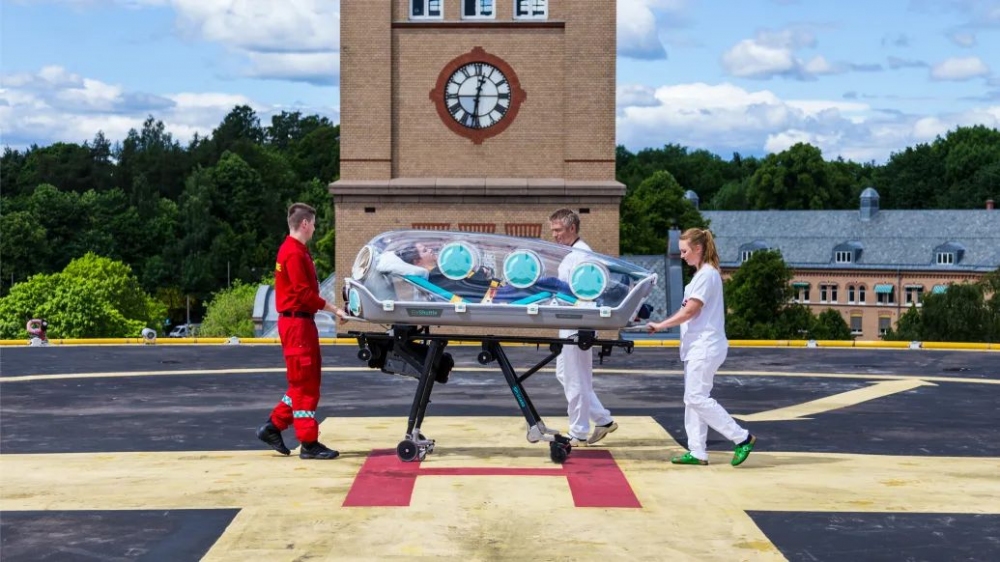Single-patient isolation and transport system could help tackle the coronavirus outbreak
Three leading European Air Forces have deployed single patient isolation pods to rescue covid-19 patients from remote areas. In record time, the EpiShuttle is now in service with The British Royal Air Force, The Royal Norwegian Air Force, the Royal Danish Air Force and the German Air Ambulance DRF.
The use of single patient isolation systems increase the efficiency of our healthcare system during the pandemic outbreak.
An ambulance or aircraft would normally require 2-4 hours of disinfection between every transport. Isolation pods reduce the need for disinfecting the ambulance, protecting both the crew and the next patient from being infected, says CEO of EpiGuard, Ellen Cathrine Andersen.
The three Air Forces and the German Air Ambulance have all deployed the isolation pod during the last week. The EU supported EpiShuttle was developed by doctors and engineers at the Norwegian company EpiGuard.
Single patient isolation systems increase the capacity of our healthcare system by making evacuations and transport between hospitals more effective. The EpiShuttle allow patients to receive treatment during the evacuation while protecting the crew, Andersen says.
Facts about medical transfers of covid-19 patients:
- Wearing in full personal protective equipment (PPE) causes fatigue and should not be performed for more than 2 hours.
- Long distance evacuation of contagious patients requires several crews to rotate on performing necessary healthcare.
- The air flow inside a helicopter can easily cause virus to flow from the patient to the crew.
- The EpiShuttle allows crew to operate without wearing full personal protective equipment and without the need for a full disinfection of the ambulance or aircraft.
